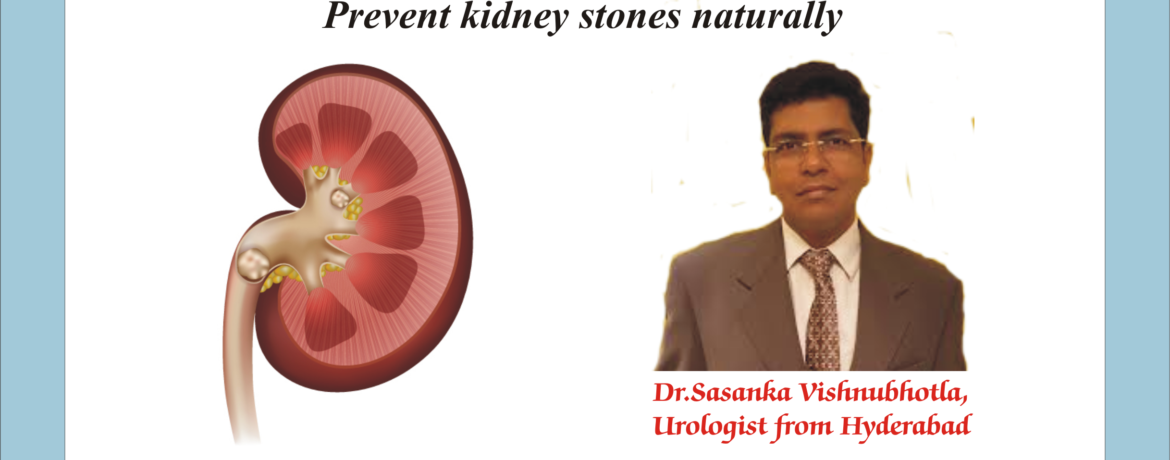Making small adjustments to your current diet and nutrition plan may go a long way towards preventing kidney stones. Read some of them below:
Stay hydrated
Drinking more water is the best way to prevent kidney stones. If you don’t drink enough, your urine output will be low. Low urine output means your urine is more concentrated and less likely to dissolve urine salts that cause stones.
Lemonade and orange juice are also good options. They both contain citrate, which may prevent stones from forming.
Lemonade and orange juice contain citrate, which prevent stones from forming
Try to drink around eight glasses of fluids daily, or enough to pass two litres of urine. If you exercise or sweat a lot, or if you have a history of cystine stones, you’ll need additional fluids.
You can tell whether you’re hydrated by looking at the colour of your urine — it should be clear or pale yellow. If it’s dark, you need to drink more.
Eat more calcium-rich foods
The most common type of kidney stone is the calcium oxalate stone, leading many people to believe they should avoid eating calcium. The opposite is true. Low-calcium diets may increase your kidney stone risk and your risk of osteoporosis.
Calcium supplements, however, may increase your risk of stones. Taking calcium supplements with a meal may help reduce that risk.
Low-fat milk, low-fat cheese, and low-fat yogurt are all good calcium-rich food options
Eat less sodium
A high-salt diet increases your risk of calcium kidney stones. Too much salt in the urine prevents calcium from being reabsorbed from the urine to the blood. This causes high urine calcium, which may lead to kidney stones.
Eating less salt helps keep urine calcium levels lower. The lower the urine calcium, the lower the risk of developing kidney stones.
To reduce your sodium intake, read food labels carefully. Foods notorious for being high in sodium include:
- Processed foods such as chips and crackers
- Canned soups & vegetables
- Meat
- Condiments
- Foods that contain sodium nitrate or sodium bicarbonate (baking soda) or monosodium glutamate
Limited intake of canned soups, chips helps in controlling the sodium levels
To flavour foods without using salt, try fresh herbs or a salt-free, herbal seasoning blend.
Eat fewer oxalate-rich foods
Some kidney stones are made of oxalate, a natural compound found in foods that binds with calcium in the urine to form kidney stones. Limiting oxalate-rich foods may help prevent the stones from forming.
Foods high in oxalates are:
- Spinach
- Chocolate
- Sweet Potatoes
- Coffee
- Beets
- Peanuts
- Rhubarb
- Soy products
- Wheat bran
High-oxalate and calcium-rich foods when taken together prevent formation of kidney stones
Oxalate and calcium bind together in the digestive tract before reaching the kidneys, so it’s harder for stones to form if you eat high-oxalate foods and calcium-rich foods at the same time.
Eat less animal protein
Foods high in animal protein are acidic and may increase urine acid. High urine acid may cause both uric acid and calcium oxalate kidney stones.
You should try to limit or avoid:
- Beef
- Poultry products
- Fish
- Pork
High animal protein products may cause uric acid and calcium oxalate kidney stones
Avoid Vitamin C Supplements
Vitamin C (ascorbic acid) supplementation may cause kidney stones, especially in men.
Men who took high doses of vitamin C supplements doubled their risk of forming a kidney stone.
Researchers don’t believe vitamin C from food carries the same risk.
Medications causing kidney stones
Taking certain prescriptions or over-the-counter medications can result in kidney stones.
Some of them are:
- Decongestants
- Diuretics
- Protease Inhibitors
- Anticonvulsants
- Steroids
- Chemotherapy Drugs
- Uricosuric Drugs
The longer you take these drugs, the higher your risk of kidney stones. If you’re taking any of these medicines, talk to your doctor about other medication options.
You shouldn’t stop taking any prescribed medications without your doctor’s approval
Broad guidelines on medications
The type of medication prescribed will depend on the type of stones you usually get.
For example:
- If you get calcium stones, a thiazide diuretic or phosphate may be beneficial
- Allopurinol (Zyloprim) can help reduce uric acid in your blood or urine (typical for uric acid stones)
- For struvite stones, long-term antibiotics may be used to help reduce the amount of bacteria present in your urine
- If you get cystine stones, capoten (Captopril) may help reduce the level of cystine in your urine
The take away
Kidney stones are common. There is no guarantee that prevention methods will work, but they may reduce your risk. Your best bet for preventing kidney stones is staying hydrated and making certain dietary changes.
If you have a condition that increases your risk of kidney stones, such as inflammatory bowel disease, persistent urinary tract infection, or obesity, talk to your doctor about ways to manage it to decrease your kidney stone risk.
If you’ve passed a kidney stone before, ask your doctor to have it tested. Once you know what type of stone you’ve had, you can take targeted steps to prevent new ones from forming.
Renowned urologist Dr.Sasanka Vishnubhotla is available for an opinion on your diagnosed kidney stones issue. If you are looking for a treatment plan for your stones, click here.



